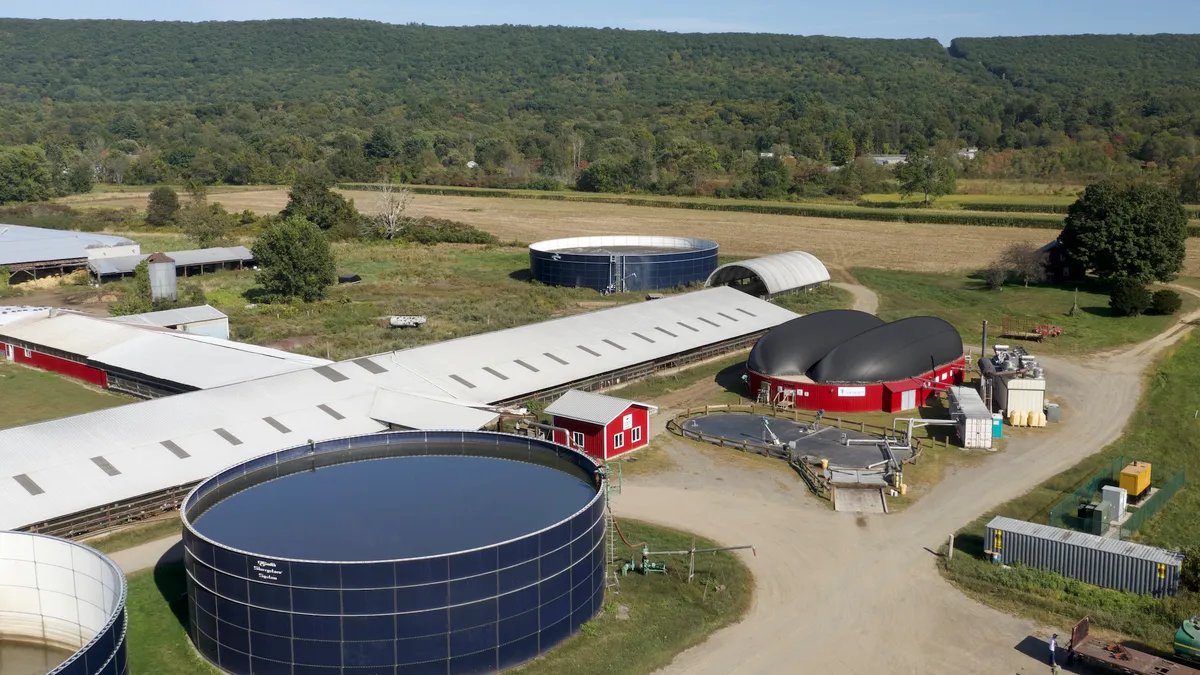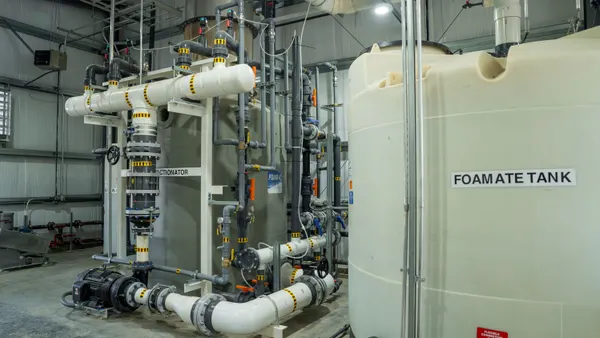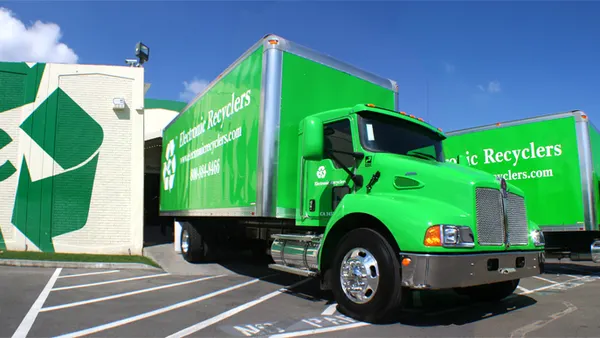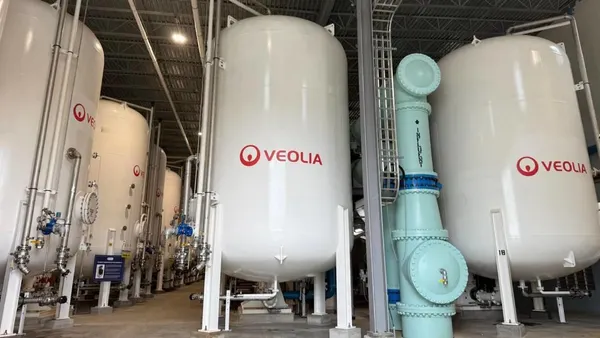Dive Brief:
- Vanguard Renewables, a Massachusetts-based anaerobic digestion company, has launched the Farm Powered Strategic Alliance (FPSA) with the goal of rapidly scaling up organics recycling in the United States. Initial members include Unilever, Starbucks and Dairy Farmers of America (DFA).
- The FPSA's goal is to organize and advocate for best practices around reducing food waste, digesting "unavoidable waste" with animal waste at farm-based sites, and creating and utilizing biogas from the process. “It’s a supply agreement and it’s an offtake agreement," said CEO John Hanselman, noting members signed separate contracts with the company.
- Vanguard has seven operational facilities in the Northeast, including a new depackaging facility in Massachusetts with 250 tons per day of capacity. More than 20 new facilities are also in development, with a near-term focus on metro areas around New York, Chicago, Philadelphia and Atlanta.
Dive Insight:
Vanguard has seen steady growth since it was founded in 2014, with a portfolio of sites across Massachusetts and Vermont, but this latest announcement is a sign of its ambition to have a national footprint.
“Our intent is to take our first mover advantage and really be the premier food waste recycler in the U.S.," said Hanselman.
Vanguard's existing operations have seen success by co-locating with farms in a symbiotic relationship. The company gets favorable terms on using the land for its facilities and a steady supply of animal waste to mix with inbound food scraps. The farms get free organic fertilizer and energy for their operations, with the resulting biogas also often being used by local communities in various ways.
While these facilities have become key elements of processing infrastructure in New England, a region known for an array of state and local policies mandating or encouraging organics recycling, Hanselman said there have been other factors limiting their scalability. In his view, separating organics at the generator level has still been viewed as too complicated or time-consuming even among companies that support the concept.
Vanguard's recently opened depackaging facility in Agawam, Massachusetts – known as an ORF (organics recycling facility) – can handle just about any type of food product unless it's packaged in glass. While the concept itself is not new, Hanselman described the ORF as an evolutionary step for the industry. Main features include a fully automated and contained process, with a complex air handling system to prevent odors. The ORF also allows Vanguard to create custom blends based on the needs of its digesters throughout the region.
The ORF model will be replicated as Vanguard enters new parts of the country, with the potential for multiple locations around Chicago alone. These plans for new digesters and ORFs are based in part on the areas where FPSA partners have large aggregations of material.
For Unilever this is largely at the manufacturing stage of its operations. Starbucks is expected to deliver material from throughout its entire supply chain, a move that will help improve the company's Scope 3 emissions for environmental, social and corporate governance (ESG) reporting. Members of the DFA cooperative, a key Starbucks supplier, generate material from dairy processing facilities and may also be interested in hosting digesters on their land.
Hanselman said the goal is to have more than 20 new FPSA members by the end of next year and operate facilities in the top 25 metro areas within the next five years.
“We’re removing all of the barriers to entry for folks to actually become part of that circular economy with food waste," he said.
While others have attempted to scale up anaerobic digestion networks in the past, and multiple newer players are also making moves, the concept has still not fully taken hold in the U.S. Traditional solid waste companies are making incremental investments in compost infrastructure or pre-processing for codigestion at wastewater treatment facilities, but disposal sites remain the primary destination for organics on a national basis.
Patrick Serfass, executive director of the American Biogas Council (ABC), said Vanguard's path appears to be unique in terms of scale and technique among organics recyclers, as "they’ve found a way to manage some of the more challenging streams of food waste."
Serfass said the sector as a whole still has ample room to grow, with companies that ABC represents taking a range of approaches, and it appears to now be doing so at a more rapid pace. At the same time, he said it had been "surprisingly challenging" to get certain generators to talk about their efforts publicly, and hoped the FPSA can help make those discussions more mainstream.
“The pressure from ESG investors has mounted faster than the pace at which companies have been able to figure out how to meet those ESG demands," he said. "So I think what the FPSA offers to their companies is a way for them to learn from the companies that have made early commitments and found a way to get ESG-driven companies up to speed faster on how to recycle more food waste."











